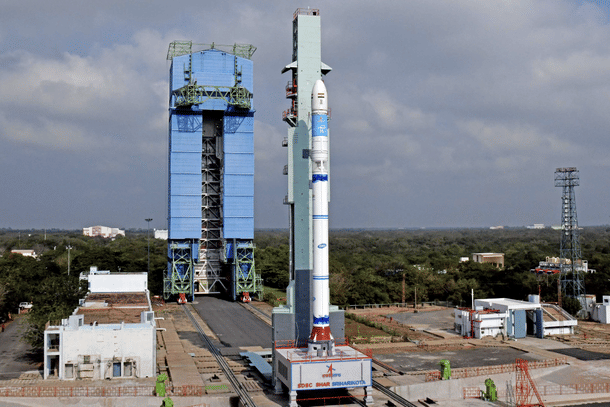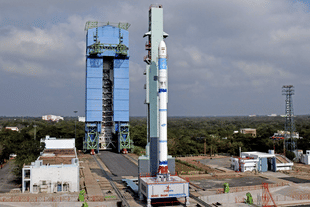Tech
ISRO To Transfer 'End-To-End Know-How' Of Small Satellite Launch Vehicle Technology To Private Industry
Kuldeep Negi
Jul 12, 2023, 09:36 AM | Updated 10:51 AM IST
Save & read from anywhere!
Bookmark stories for easy access on any device or the Swarajya app.


The Indian National Space Promotion and Authorisation Centre (IN-SPACe) on Tuesday (11 July) invited the expression of interest (EoI) for the technology transfer of the Small Satellite Launch Vehicle (SSLV).
IN-SPACe is a single-window, independent, nodal agency that functions as an autonomous agency in the Central government's Department of Space (DOS).
"Taking cognizance of global small satellite launch market, IN-SPACe has taken initiative to transfer the technology of Small Satellite Launch Vehicle (SSLV) to private Indian industries who are keen on assimilating the technology, setting up manufacturing and business operations and competing in the global satellite launch market. In this context, applications are invited from Indian Industries in response to Expression of Interest (EoI) for the Technology Transfer of SSLV," the agency said on Tuesday.
IN-SPACe is responsible for promoting, enabling, authorising and supervising various space activities of non-governmental entities including building launch vehicles and satellites and providing space-based services; sharing space infrastructure and premises under the control of DOS/ISRO; and establishing of new space infrastructure and facilities.
According to the agency, the objective of the EoI is to invite proposals from qualified Indian Industries interested in acquiring the "end-to-end know-how of Small Satellite Launch Vehicle (SSLV) from ISRO".
"The technical know-how shared with Selected Party will be including but not exclusively - Design guidelines, analyses procedures (aerodynamic, thermal, structural, avionics, Navigation, etc), Review Mechanisms, Process-QA (Quality Assurance) /QC (Quality Control) Plans, Manufacturing Operations, Qualification and Acceptance tests, Vehicle Integration and tests, Launch Pad Operations, post-flight analyses, of all the components, sub-systems, systems and any hardware / software - associated with SSLV," the EoI document said.
"The outcome of this process would be to enable Indian private industry to design and build their own launch vehicles in a quick turnaround time," it added.
According to the document, the scope of the EOI involve short-listing "experienced Indian Industries who have handled multi-disciplinary turn-key projects and are capable of absorbing the technology of SSLV including aerodynamics, structural design, auxiliary systems, propulsion technologies, avionics, etc, from ISRO. Thereby setting-up a sustainable industry model for manufacture, periodically upgrade the designs, and launch as per the market demand".
The ISRO-developed SSLV, which has already undergone two development flights, is designed to provide on-demand services for launching satellites weighing up to 500 kg into a low-earth orbit.
The SSLV is the sixth launch vehicle developed by ISRO. It has already undergone two development flights, one in August last year and another in February this year.
The maiden flight of the SSLV in August last year encountered a failure due to vibration disturbance for a short duration on the Equipment Bay deck during the second-stage separation.
After conducting a thorough analysis of the fault, the ISRO implemented corrective measures and successfully launched the SSLV in February.
During the launch in February, the SSLV placed the ISRO's EOS-07 satellite, US-based firm Antaris' Janus-1, and AzaadiSAT-2 from Chennai-based space start-up Space Kidz into a 450-km circular orbit.
Kuldeep is Senior Editor (Newsroom) at Swarajya. He tweets at @kaydnegi.





